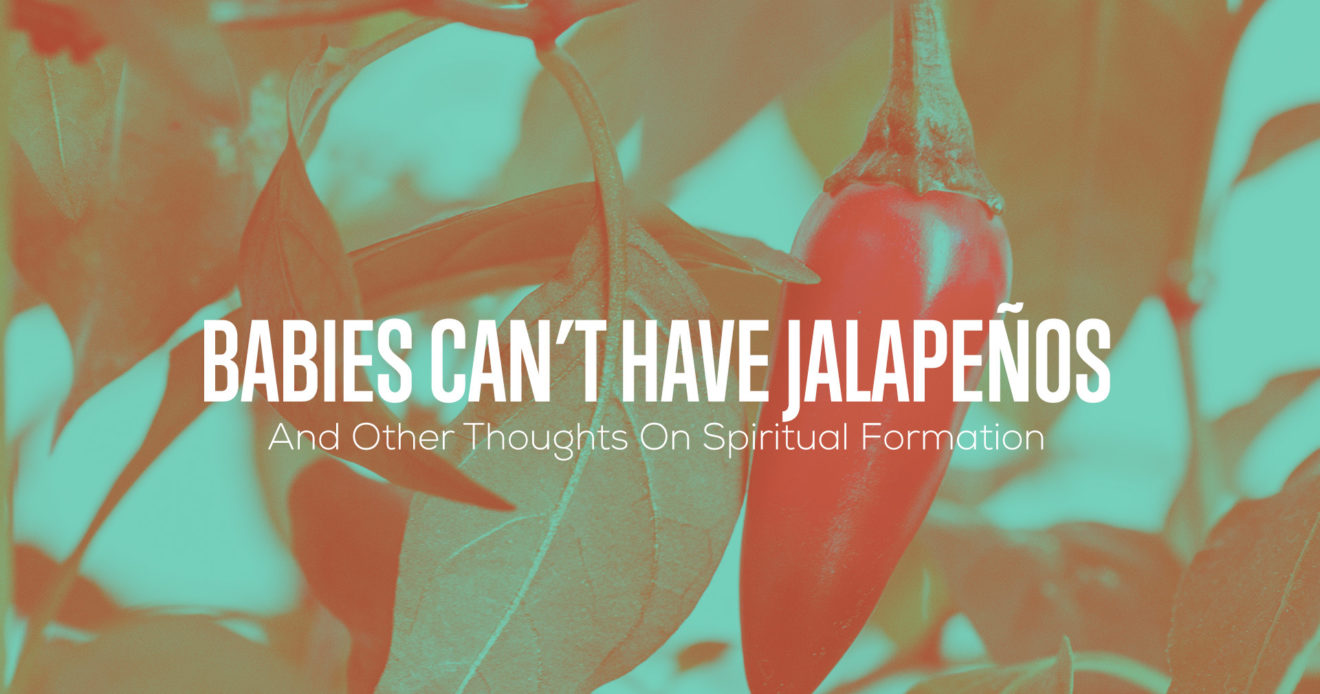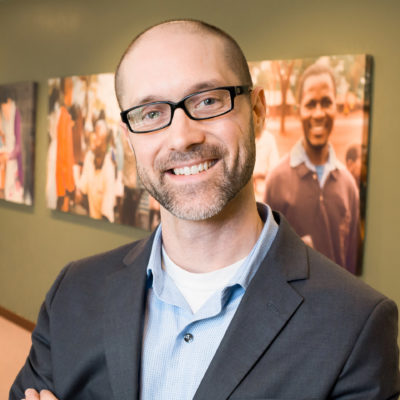
Babies Can’t Have Jalapeños
Being a father of four, I think it safe to say that I know babies. I recently was very excited when I realized I could tell the difference between a hungry cry, a pain cry, and an "I just want to cry because I feel like crying" cry. Teething no longer annoys me; bouncy, crazy children who say the most random things make me laugh when it once annoyed me daily. I have even recently turned into one of those dads that no longer cares what others think in public.
But there is still one really dumb thing; I can never seem to get used to as a parent.
Food.
It's stupid really, but once kids begin to eat solid food, I start freaking out, like they're going to choke every time they eat. I never seem to think they are ready to chew, the food is too big, too crunchy, too spicy, too something. Don't make the kid laugh, smile, or talk; because they might breathe in too fast and…yes, you guessed it. Choke. Yet it never fails, my wife always knows just the right timing. She knows the right food to give at the just the right time. Not only so the babies can handle the food, but also to teach them to eat healthy food, eat balanced meals, and to train their palate. Her plan in designing meals for the kids is more than just to make sure they are fed, it is thinking about what kind of eater we want in two, three, or ten years from now. The habits start now.
But does this kind of care in raising our kids physically translate to how we grow them spiritually?
The overwhelming trend among parents, youth pastors, and teachers is the perception that developing friendships with the youth we lead, the kids we parent, or pastor will somehow translate into our kids being happier, more successful, and even better followers of Jesus. Many have bought into the idea that our students know what is best for them. Yet there is no evidence that anything remotely close is actually working. In fact, the opposite is true. Trying to be friends with our kids is causing more harm than good. It seems almost strange to me that what was once intuitive when our children were infants learning the simplest task, like how to eat, becomes all but forgotten as time progresses, and lessons become increasingly important.
I have to admit that I have the same fear exposing my kids to the world that I do when feeding them. I fear that I will allow their curious eyes, and tender hearts to be exposed to something they are not ready to handle. So I shelter them, and their exposure to the world is as calculated as my wife is when she is introducing new foods.
What about our middle and high school students? Can’t they handle it?
Despite the fact that teenage students are often incredibly intelligent, their minds are still developing, their decision making is less than reliable, and their knowledge of the world is often filtered through skewed media, leaving behind important perceptions, different angles and sides to stories. Music is more daring than ever, constantly pushing the culture line. Incredible graphics and cinematography have created movies and video games that open a window to an overinflated and unrealistic reality. Allowing students to listen, watch, download virtually anything and everything is not all that different than me giving my two-year-old a slice of pizza with anchovies and jalapeños. It doesn't take a degree in medicine to figure out his body can’t handle that kind of food. Neither should a student be exposed to many of the things they feed on daily as a regular part of their teenage diet. My two-year-old doesn't know he can’t have an anchovy and jalapeño pizza and neither do students realize what they can or cannot handle.
Some of my family and friends think that I shelter my kids too much and that I advocate for sheltering students because I used to be Christian educator and we are a homeschool family. I am frequently told that I need to lighten up and not worry so much. Sheltering does not have to be a bad thing. Just like infants learning to eat, or athletes learning a sport, or even a student learning a subject like math. Exposure must be calculated and often limited. What I am not doing is sheltering my kids from everything bad or evil in the world. I do not believe that every kid should live their lives inside a Disney animated film. Students need to see the evil in the world, they need to be exposed to hate, destruction, and injustice. But only so they can see the need for love, justice, and reconciliation. They need to see the need for the kingdom of God in this world, and they need to see how they can be a part of that process. But what they are ready for, when they are ready for it.
This is calculated exposure. This is our job as pastors, teachers, and parents. To make a conscious effort to only expose our students to what they are ready to handle and to do so in a controlled environment. In my next post, I’ll show you what I mean specifically by calculated exposure, by creating “battle like” conditions for students; so when they encounter the world, they know how to handle it.
Steve Kozak
Executive Director of AwanaYM
Steve currently serves as the Executive Director of AwanaYM. Previously, Steve spent over a decade teaching high school theology and apologetics from Detroit to LA. Steve holds a Masters degree in Theology from Moody Theological Seminary and a Masters in Christian Apologetics from Biola University. Steve is also an adjunct professor at Trinity International University. He speaks and writes on youth ministry, youth culture and apologetics. He resides in Chicago, IL with his wife and four children.FollowSteve Kozak on Twitter: stevenmkozak
Comments
Get the AwanaYM Update
Receive youth ministry resources in your inbox. Subscribe today!
